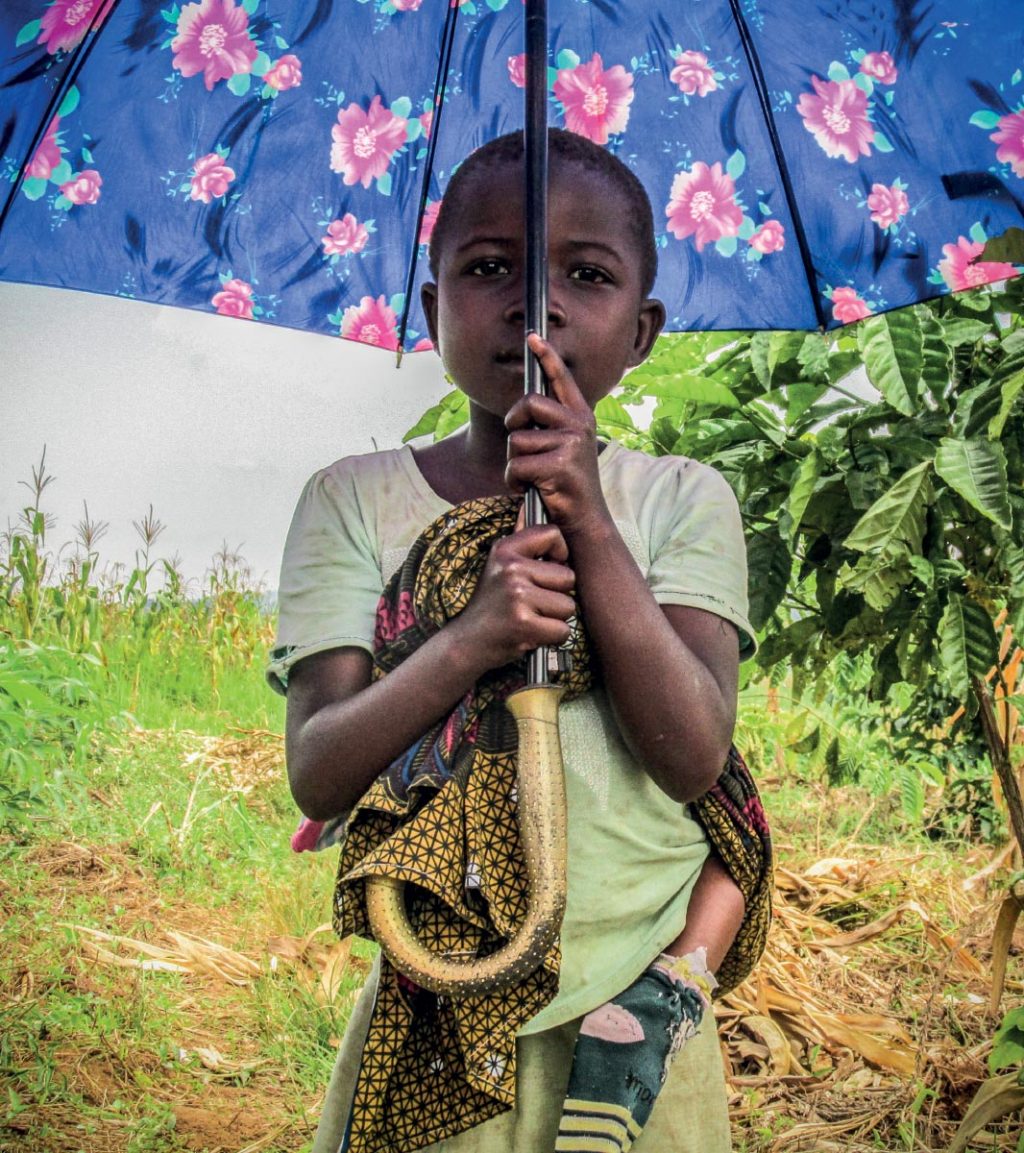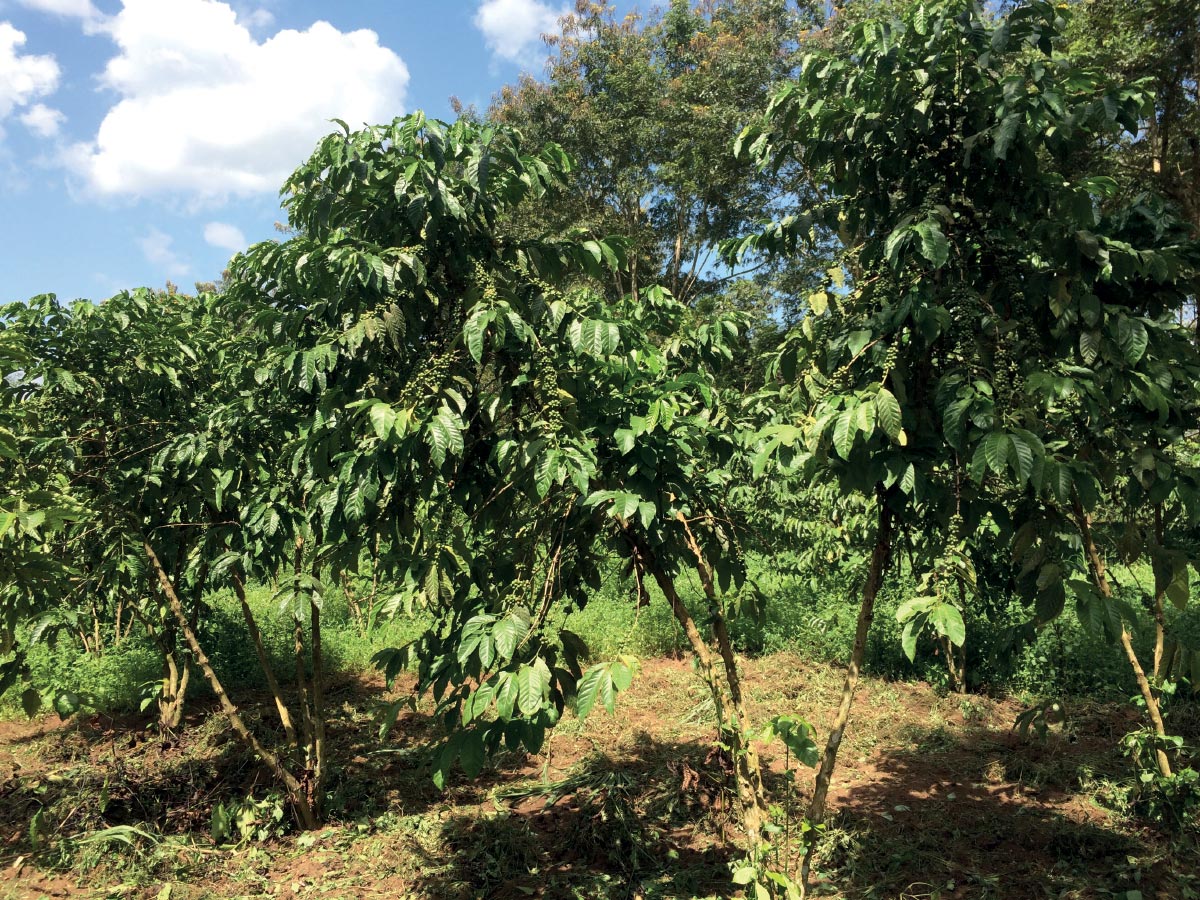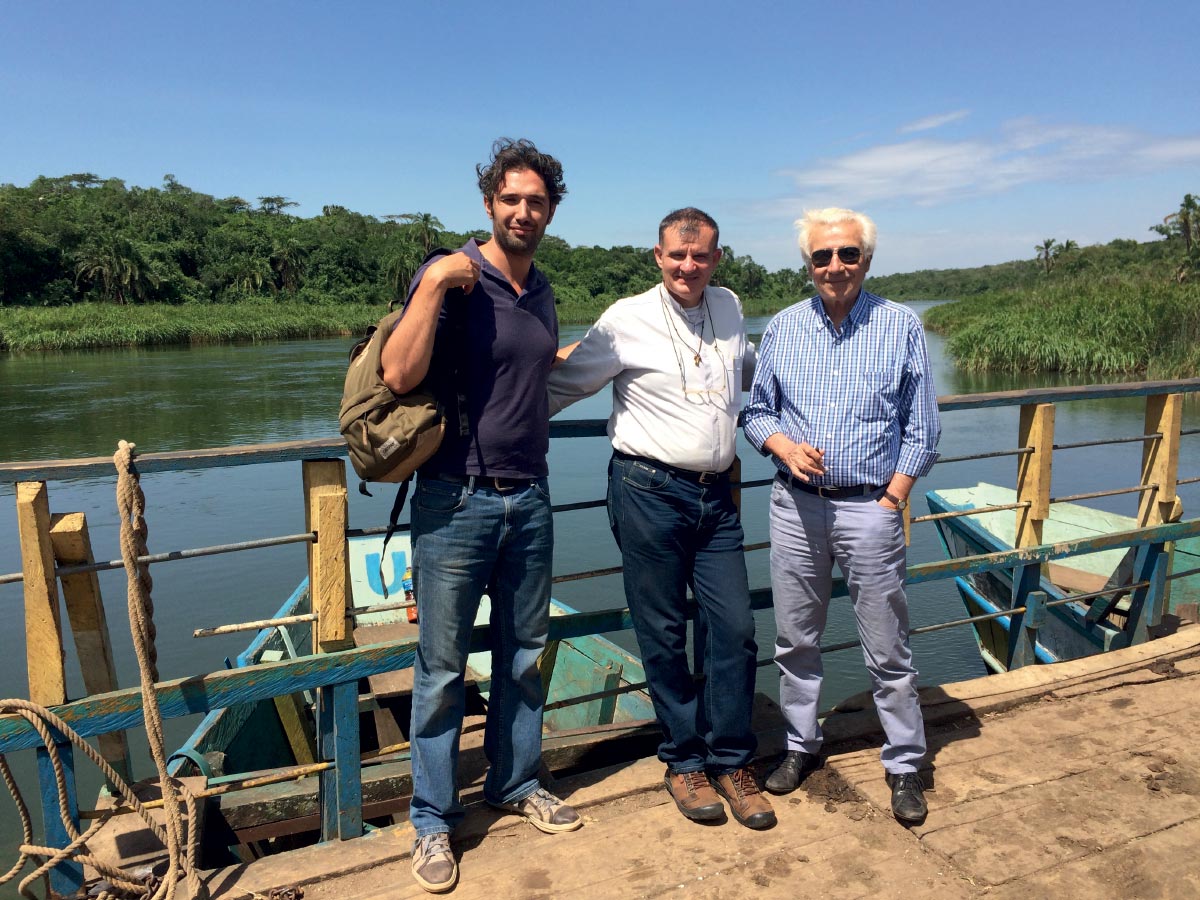Reach the countries, where coffee plants grow, in person; get immersed into those places where access to food, electricity or water is not taken for granted. Some do it not only to see the best beans with their own eyes, and measure the furrows on the berries with their finger- tips, but also for a different purpose: support small farmers that see new hopes of growth and development in coffee plantations. Giovanni Spadola, founder of Caffè Moak, is hard to dissuade when it is about leaving for long trips towards those lands. Destina- tion Congo, North Kivu to be more precise, bordering with Uganda. It’s not the first time he heads out on such long and windy journey in search of best single origins. Coffee hunter Adrian Cafiso accompanies him, and is told – during the trip bringing them to the plantations – of one of his trips in this part of Africa during the early Nineties, when the Democratic Republic of Congo was Africa’s leading producer of both Arabica and Robusta coffee varieties, and that farmers bordering with Uganda managed to earn nearly 70% of raw material value.
Afterwards, the continuous outbursts of war to control coltan, diamonds and gold unfortunately did now allow the development of far-sighted trade policies, and rather impoverished local populations. Adriano tells that there are no bridges or tarred roads here: men, women and children walk barefoot on dirt roads packed with wood, food and water for kilometres. The only way to cross the Semliki river close by is via a motor raft going back and forth from one side to the other.
“Along the route– they tell – that will lead us to the didactic farm “Nino Baglieri”, we are heading to, the only public works we’ll see are small hydroelectric plants providing power, scarce, to the town”. Indeed, because the thirty-year lasting civil war, international in- terested on mineral wealth and local conflicts between factions to control the land lead to a very complex and troubled social-political situation in one of the richest regions of the globe. Once at the farm, Father Salvatore Cerruto, Sicilian missionary priest, who helps in the construction and management of two centres dealing with malnourished children, a hospital and a didactic farm named after Nino Baglieri, a writer from Modica, welcomes them. “Together, we’ll visit Butembo, where there still are functioning coffee processing factories, offices for quality control and plant protection issues. On one hand, this trip moved us for the poverty you feel in any corner; however, on the other hand, it gave hope to farmers, who still firmly believe in a new system based on support policy and incentivisation to go back to their trade”. Such hope is also nurtured by the fact that there are different communities producing reasona- ble amounts of coffee in the entire northeast area; which formed a consortium, such as the case of the ninety communities of Tuungane, south of Lubero. They get together every two months to find mutual solutions in order to cope with common needs to cooperate with the organisations that are involved, and to inform the end consumer. Coffee is a hope that could become again a real opportunity of growth for this country.



